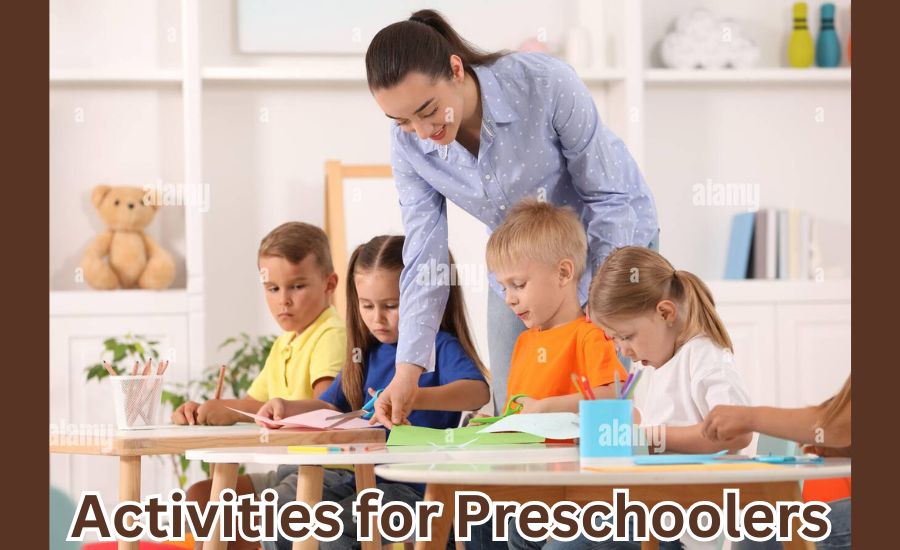Preschoolers are at a pivotal stage in their development. Engaging them in creative and educational activities not only nurtures their young minds but also fosters a love for learning. From innovative board games for 3-4 year olds to outdoor adventures, there are a variety of activities that can significantly benefit children in this age group.
This article explores various fun and educational activities tailored specifically for children aged 3 and 4. It aims to provide a comprehensive guide for parents and educators looking to enrich their preschoolers’ learning experiences.
Key Takeaways
- Creative and educational activities boost cognitive and social development in young children.
- Incorporating hands-on activities can enhance motor skills and engagement.
- Utilize free and budget-friendly resources to curate fun learning experiences.
The Benefits of Creative Activities
Incorporating creativity into your child’s routine has numerous benefits. Activities like drawing, painting, and storytelling can significantly boost their cognitive development. These creative endeavors encourage children to think outside the box and express themselves in unique ways.
Engaging in creative play helps in enhancing problem-solving skills and emotional expression. Moreover, creative activities can foster social skills by encouraging children to share their ideas and work collaboratively with their peers.
Encouraging Artistic Expression
Artistic activities such as drawing and painting allow children to explore different colors, shapes, and textures. This exploration helps develop their visual and fine motor skills. Additionally, providing a variety of materials like colored pencils, watercolors, and markers can stimulate their imagination and keep them engaged for extended periods.
Indoor Activities for Rainy Days
Children may find rainy days difficult, but there are entertaining and instructive indoor activities available. Using standard household supplies like paper plates, cardboard, and markers, one may create do-it-yourself creative projects that are themed around holidays or seasons. While interactive storytelling can boost creativity and listening abilities, building block activities can help with fine motor skills and spatial awareness.
A mini-obstacle course made out of pillows, chairs, and blankets can be set up, small toys or goodies can be hidden throughout the house for a treasure hunt, and basic maps or clues can be provided to create an indoor adventure. Children can use these indoor activities to release energy and hone their problem-solving abilities.
Outdoor Adventures When the Weather is Nice
Outdoor adventures are a great way for kids to exercise, breathe fresh air, and explore the outdoors. Sensory activities enhance children’s senses of sight, sound, touch, and smell. Set up a nature scavenger hunt in your neighborhood park or garden, where they can learn about ecology and nature.
Construct an obstacle course using cones, hoops, and other mobile objects to encourage physical exercise. Visit local parks and nature trails to observe different types of birds, insects, and plants. Bring a magnifying glass or a small field guide to make the exploration more interactive and educational. These outdoor activities provide children with a chance to learn about nature and its various creatures.
Educational Games and Puzzles
Educational puzzles and games are great ways to add pleasure to learning. They can enhance logical reasoning, memory, and pattern identification. Including these games in a child’s daily routine can also help them develop persistence and patience as they strive to solve puzzles or win games.
- Memory Matching Games: These games enhance memory skills and concentration. By flipping over cards to find matching pairs, children practice visual memory and improve their attention to detail.
- Number Puzzles: Solving simple number puzzles can introduce basic math concepts. This can include counting, adding, or even recognizing number patterns.
- Alphabet Games: Use alphabet games to build early reading skills. Activities such as alphabet puzzles or letter tracing can help children recognize letters and understand their sounds.
Interactive Learning with Board Games
Utilizing educational board games designed explicitly for preschoolers can create enjoyable learning experiences. Various board games for 3-4-year-olds focus on developing language skills, color recognition, and basic math concepts. Playing these games in a group setting also helps children learn to take turns and develop social skills.
Utilizing Technology Wisely
While screen time should be limited, valuable educational resources like https://dontforgot.com/quad-education-group-review/ are available online. For instance, PBS Parents offers many activities and ideas for young children that combine fun with learning. These resources range from interactive games and videos to printable worksheets and activity guides.
Choosing Quality Educational Apps
Select educational apps that align with your child’s learning needs. Look for apps that incorporate storytelling, puzzles, and interactive content that can engage children while teaching them valuable skills. Ensure the apps are age-appropriate and have positive reviews from other parents and educators.
Conclusion
Keeping preschoolers engaged with creative and educational activities is paramount for their development. By incorporating a mix of indoor crafts, outdoor adventures, puzzles, and the thoughtful use of technology, you can foster an enriching learning environment for your little ones.
Remember, the goal is to make learning as enjoyable as possible while accommodating their boundless curiosity and energy. The key is to provide diverse activities that cater to different aspects of their growth, from cognitive and motor skills to social and emotional development.
Stay informed with the latest news and updates on Discover Essential.com
